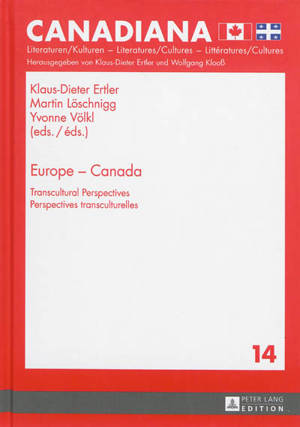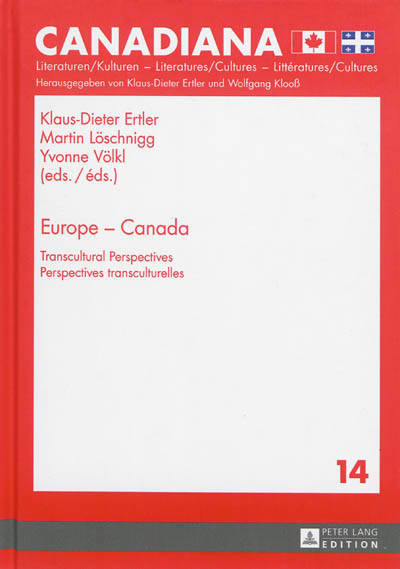
- Afhalen na 1 uur in een winkel met voorraad
- Gratis thuislevering in België vanaf € 30
- Ruim aanbod met 7 miljoen producten
- Afhalen na 1 uur in een winkel met voorraad
- Gratis thuislevering in België vanaf € 30
- Ruim aanbod met 7 miljoen producten
Zoeken
Europe - Canada
Transcultural Perspectives- Perspectives Transculturelles
€ 72,95
+ 145 punten
Omschrijving
As a result of its colonial past, Canadian culture has been shaped by French, British and other European influences; since the second half of the twentieth century, however, large-scale immigration from Asia, Africa, the Caribbean, Latin America and the Middle East, as well as economic and cultural globalization and the recognition of the cultural significance of the country's First Nations have transformed Canadian society, and this transformation has affected the European dimension of Canada's cultural heritage, too. The publication addresses the role of this dimension in the collective consciousness of contemporary Canada and the complexities of Canadian-European political and cultural relations at the beginning of the twenty-first century.
En raison de son passé colonial, la culture canadienne a été façonnée par des influences françaises et britanniques ainsi que par d'autres cultures européennes. Cependant, à partir de la deuxième moitié du 20e siècle, l'immigration importante de l'Asie, de l'Afrique, des Caraïbes, de l'Amérique latine et du Proche-Orient, la globalisation économique et culturelle ainsi que la reconnaissance officielle des Premières Nations ont transformé la société canadienne. Cette transformation a également eu des conséquences sur la dimension européenne de l'héritage culturel du Canada. Le livre aborde le rôle de cette dimension dans la conscience collective du Canada contemporain et la complexité des relations politiques et culturelles entre l'Europe et le Canada au début du 21e siècle.
En raison de son passé colonial, la culture canadienne a été façonnée par des influences françaises et britanniques ainsi que par d'autres cultures européennes. Cependant, à partir de la deuxième moitié du 20e siècle, l'immigration importante de l'Asie, de l'Afrique, des Caraïbes, de l'Amérique latine et du Proche-Orient, la globalisation économique et culturelle ainsi que la reconnaissance officielle des Premières Nations ont transformé la société canadienne. Cette transformation a également eu des conséquences sur la dimension européenne de l'héritage culturel du Canada. Le livre aborde le rôle de cette dimension dans la conscience collective du Canada contemporain et la complexité des relations politiques et culturelles entre l'Europe et le Canada au début du 21e siècle.
Specificaties
Betrokkenen
- Uitgeverij:
Inhoud
- Aantal bladzijden:
- 246
- Taal:
- Frans, Engels
- Reeks:
- Reeksnummer:
- nr. 14
Eigenschappen
- Productcode (EAN):
- 9783631629437
- Verschijningsdatum:
- 16/10/2013
- Uitvoering:
- Hardcover
- Formaat:
- Genaaid
- Afmetingen:
- 150 mm x 208 mm
- Gewicht:
- 430 g

Alleen bij Standaard Boekhandel
+ 145 punten op je klantenkaart van Standaard Boekhandel
Beoordelingen
We publiceren alleen reviews die voldoen aan de voorwaarden voor reviews. Bekijk onze voorwaarden voor reviews.










